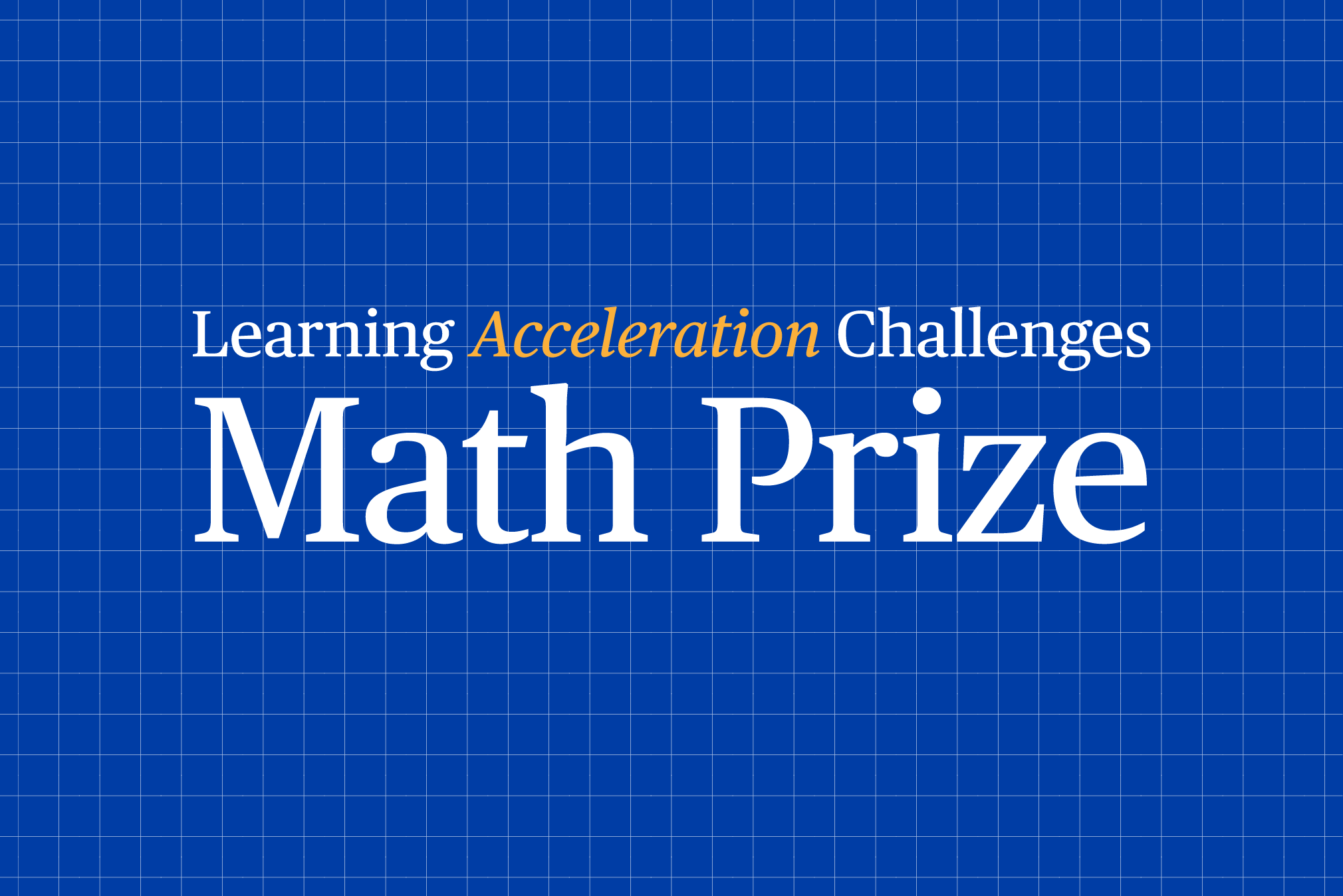Advancing interventions to improve math achievement.
In 2019, more than half of fourth graders with disabilities scored Below NAEP Basic in mathematics, compared with only 15% of their peers without disabilities. This achievement gap has only been compounded by the effects of the COVID-19 pandemic. Schools have an acute need for scalable interventions to support students with or at risk for a disability in mastering foundational concepts such as whole numbers, rational numbers, and fractions.
Last week, the Institute of Education Sciences announced finalists in the IES Learning Acceleration Challenges: Math Prize. The challenge called for school-based, digital interventions to significantly improve math outcomes, especially in the area of fractions, for upper elementary school students with or at risk for a disability that affects math.
Two finalists were selected based on scoring by judges against the Phase 1 selection criteria. Each finalist was awarded $25,000 and will advance to Phase 2 of the Math Prize:
The DRUM (Digital Rational Number) Intervention. DRUM will use number lines and analogies to support students’ understanding of multiple number types (for example, whole numbers, fractions, decimals, percentages) to promote integrated rational number sense.
ExploreLearning. Reflex (for math facts) and Frax (for fractions) are educational games built on adaptive technology that assesses and targets areas of skill gaps, and delivers different levels of support to students depending on what they need to progress.
Finalists will now implement their interventions at partner schools through April 2023. The Math Prize will offer up to $725,000 in additional Phase 2 prizes.
The judging panel did not recommend any finalists for the Science Prize, an ambitious and rapid effort to improve science achievement. With the knowledge gained from this challenge, IES hopes to continue designing opportunities that encourage transformative, innovative change within education.

